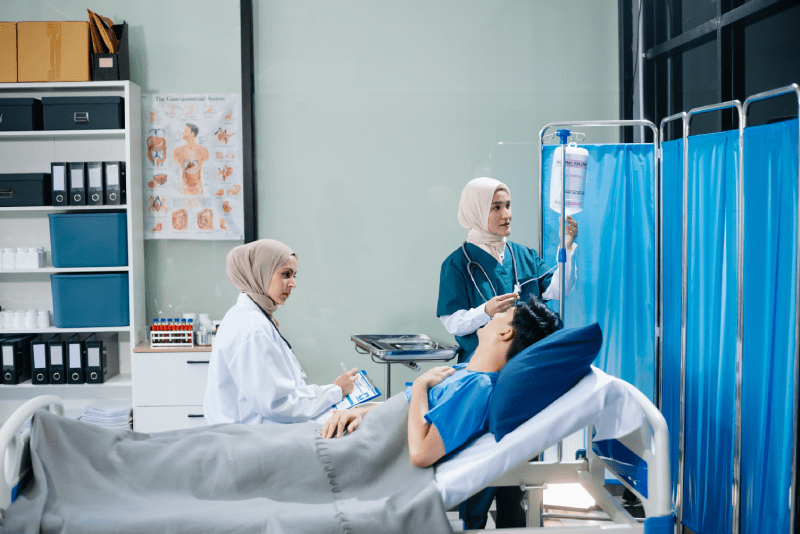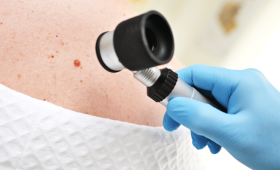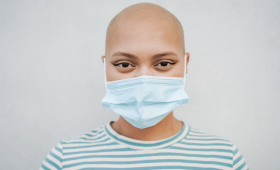Which International Accreditations Do Oncology Centers In Turkey Hold?
Most leading oncology centers in Turkey hold certifications such as Joint Commission International (JCI) Accreditation, which internationally validates their service quality. These accreditations mean that the centers regularly audit patient safety, infection control, and the compliance of treatment protocols with international standards. These documents are concrete evidence that the quality and safety of treatment for international patients are high and provide important information about the center’s competence when making a treatment decision.
What Are The Key Criteria Determining The Most Successful Oncology Centers?
The key criteria determining the most successful oncology centers include the multidisciplinary approach, the advanced technological equipment used, and the center’s annual patient volume and treatment outcomes. In a successful center, medical oncologists, radiation oncologists, surgeons, pathologists, and radiologists determine the treatment in a joint council. Furthermore, the availability of cutting-edge technology devices like PET-CT, SBRT/VMAT are critical factors determining the precision in diagnosis and treatment. The presence of experienced expert staff also directly influences success.
How Do Cancer Treatment Costs In Turkey Compare To Europe And The USA?
Cancer treatment costs in Turkey are generally 50% to 70% lower compared to Europe and the USA. Especially high-cost innovative treatments like immunotherapy and smart drugs can be accessed in Turkey both faster and more economically. This cost advantage is offered without compromising the quality of health services, as most centers use the same technology and protocols. This situation is the most important factor making Turkey an attractive health tourism destination for international patients.
Which Technological Devices Indicate A Center’s Success?
Technological devices that indicate an oncology center’s success include VMAT (Volumetric Modulated Arc Therapy), SBRT (Stereotactic Body Radiotherapy) used in radiotherapy, and Robotic Surgery systems. In diagnosis and staging, PET-CT and advanced molecular genetic analysis laboratories are critically important. These devices enable targeting the tumor with high precision, minimizing damage to surrounding healthy tissue, and improving treatment outcomes.
What Is The Access To Smart Drugs And Immunotherapy In Turkey Like?
In successful oncology centers in Turkey, rapid and easy access is available to all smart drugs and immunotherapy agents approved by international guidelines (NCCN, ESMO). The long approval and waiting periods seen in Europe and some other countries are generally not experienced in Turkey. This provides a vital advantage, especially for cancer patients who need to start treatment quickly. Furthermore, the costs of these drugs are more reasonable compared to prices in the West.
What Is The Multidisciplinary Tumor Council And What Is Its Importance?
The Multidisciplinary Tumor Council is an expert team consisting of at least a medical oncologist, radiation oncologist, surgeon, pathologist, and radiologist, where the patient’s treatment plan is determined. In this council, all the patient’s medical data, the tumor’s stage, and molecular structure are evaluated together. The council combines the knowledge and experience of many disciplines instead of a single specialist, offering the most appropriate, up-to-date, and effective combined treatment plan for the patient. This approach maximizes success in treatment.
Why Is The Quality Of Pathology And Molecular Diagnosis Laboratories Important?
The quality of pathology and molecular diagnosis laboratories is of vital importance for the personalization of treatment. Especially in types like lung, breast, and skin cancer, the genetic structure of the tumor (mutations like EGFR, ALK, PD-L1) must be determined accurately and quickly. Advanced laboratories where these tests are performed with high accuracy determine the patient’s suitability for smart drugs and immunotherapy. Wrong or incomplete molecular analysis can lead to the patient receiving incorrect treatment.
What Are The Purposes Of VMAT And SBRT Methods Used In Radiotherapy?
VMAT (Volumetric Modulated Arc Therapy) and SBRT (Stereotactic Body Radiotherapy) are the most advanced technologies used in radiotherapy. VMAT allows the adjustment of the radiation dose according to the shape of the tumor, minimizing damage to healthy tissue. SBRT, on the other hand, provides local control similar to surgery by applying a very high dose of radiation to small tumors, especially early-stage or metastatic ones, in few sessions and with high precision. These methods enhance treatment effectiveness while reducing side effects.
What Are The Pre-Surgery Waiting Times For Cancer Treatment In Turkey?
Waiting times for oncological treatments in Turkey are much shorter, especially compared to public systems in Western countries. Surgical operations can generally be planned within a few weeks after the diagnosis is confirmed and staging is complete. Drug treatments like smart drugs or immunotherapy are usually started as soon as the diagnosis and molecular test results are obtained. This speed is a major advantage that positively affects the patient’s prognosis in a disease where time is critical, such as cancer.
Do Oncology Centers’ Areas Of Expertise Differ According To Cancer Types?
Yes, areas of expertise differ among oncology centers according to cancer types. Some centers stand out in surgical and reconstructive fields for breast and gynecological cancers, while others are recognized for advanced stem cell transplantation units for lung cancer and hematological cancers (leukemia/lymphoma). Selecting the most suitable center for the treatment plan is possible by directing the patient to the center with the most experience in their specific cancer type, and this significantly increases treatment success.
To Which Standards Do Stem Cell Transplantation Units In Turkey Comply?
Stem cell transplantation units in successful oncology centers in Turkey fully comply with international standards and strict hygiene rules. These units, in addition to having international accreditations, have special infrastructures such as HEPA-filtered positive pressure rooms to minimize the risk of infection after transplantation. This high level of sterilization is vital in the treatment of hematological cancers such as leukemia, lymphoma, and myeloma, and maximizes patient safety.
What Are The New Generation Surgical Methods For Lung Cancer?
New generation surgical methods used in lung cancer include VATS (Video-Assisted Thoracoscopic Surgery) and Robotic Surgery. These minimally invasive techniques are performed by entering through small holes instead of a large incision. These methods offer the patient the advantages of less pain, less blood loss, a shorter hospital stay, and a much faster recovery compared to traditional open surgery (thoracotomy). These surgical techniques have become standard for early-stage cancers.

What Are The Oncoplasty And Reconstruction Possibilities In Breast Cancer?
Oncoplastic surgery and reconstruction possibilities in breast cancer are offered at an advanced level in leading centers in Turkey. Oncoplastic surgery ensures the preservation of the breast’s shape and aesthetics while the tumor is removed. After mastectomy, immediate or delayed reconstruction options are available. Reconstructions using silicone implants or the patient’s own tissue (autologous tissue transfer) support the patient’s psychological health and help them regain their body image.
Why Is It Important To Consult With A Radiation Oncologist At The Oncology Center?
Consulting with a radiation oncologist is the first and most critical step before every patient requiring radiotherapy begins treatment. The radiation oncologist evaluates the patient’s CT/MRI images and tumor biology to create a personalized treatment plan where the radiation dose and the area to be targeted are precisely determined. The expertise and planning of this specialist are vital for using the latest radiotherapy technologies and protecting healthy organs.
How Are Patient Monitoring And Supportive Care Provided During Treatment?
In successful oncology centers, patient monitoring and supportive care are provided with a holistic approach that covers the entire treatment process. This includes not only cancer treatment but also psychological support (psycho-oncology), dietetics services, pain management, and palliative care services. Patients are closely monitored with regular blood tests and imaging, and treatment-related side effects are quickly managed. This support maximizes the patient’s compliance with treatment and general quality of life.
What Is The Experience And Expertise Of Medical Oncologists In Turkey Like?
Medical oncologists in Turkey are specialists who have been trained at reputable universities in Europe and America and are internationally recognized. Most have deep experience in the latest targeted therapies, immunotherapy, and chemotherapy protocols. Centers support oncologists’ participation in international congresses to ensure they continuously follow current scientific developments. This experience plays a critical role, especially in the management of complex cases like Stage 4 cancer.
What Are The Translation Services Like For Foreign Patients In Cancer Treatment?
Leading oncology centers in Turkey offer comprehensive translation services to facilitate the treatment process for foreign patients. This service continues not only during medical consultations but also during hospital admission, paperwork, medication explanations, and follow-up processes. The presence of competent interpreters in English, Arabic, and other common languages ensures the transparency of communication between the patient and doctor and the correct understanding of treatment decisions.
Do Oncology Centers’ Drug Supply And Storage Conditions Comply With International Standards?
In high-level oncology centers in Turkey, drug supply and storage conditions fully comply with international pharmaceutical standards (GMP). Especially the cold chain and storage conditions necessary to maintain the effectiveness of immunotherapy and some chemotherapy drugs are meticulously provided. The originality and quality of the drugs are guaranteed. This is vitally important for the effectiveness of the treatment and ensures that patients do not worry about drug quality.
What Is The Role Of PET-CT Scanning And Imaging Technologies In Treatment?
PET-CT scanning and advanced imaging technologies are indispensable for accurate staging, monitoring the response to treatment, and detecting recurrence in cancer treatment. PET-CT shows the metabolic activity of cancer foci in the body, precisely identifying active tumor cells. This is vitally important for understanding the spread of metastatic disease and how much the tumor is responding to treatments like immunotherapy, and it allows unnecessary treatments to be avoided.
How Are Pain Management And Palliative Care Applied In Cancer Patients?
Pain management in cancer patients starts simultaneously with active treatment in successful oncology centers and is the primary duty of the palliative care team. The goal is to completely eliminate pain or reduce it to an acceptable level. This is achieved through medication treatments (from simple pain relievers to opioids), interventional pain treatments, and controlling the pain caused by metastasis with radiotherapy. Palliative care supports the patient’s compliance with treatment by enhancing the quality of life.
What Are The Accommodation And Support Facilities For The Patient’s Family During Treatment?
Oncology centers in Turkey offer various support and accommodation facilities, also considering the comfort of foreign patients’ families. This includes contracted accommodation options near the hospital, private transfer services, and social and cultural guidance services that may be needed during the treatment process. Family support is critically important for keeping the patient’s morale high and accelerating the recovery process. Health tourism companies like Cure Holiday manage these organizations from start to finish.

Which Advanced Treatment Protocols Are Applied In Turkey For Different Cancer Types?
The most current and internationally approved protocols are applied for different cancer types in Turkey. Immunotherapy and new-generation smart drugs for lung cancer, personalized hormone and HER2-targeted therapies for breast cancer, multi-agent chemotherapies and neoadjuvant treatments before surgery for colorectal cancers are standard. Additionally, autologous/allogeneic stem cell transplantation programs with high success rates for hematological cancers like leukemia/lymphoma are also widely offered.
How Easy Is It To Get A Second Opinion In Turkey?
Getting a second opinion about a cancer diagnosis or treatment plan in Turkey is quite easy and a strongly encouraged practice. Leading oncology centers quickly evaluate medical reports and imaging from international patients, providing a tumor council opinion in a short time. This service increases the patient’s confidence in the treatment and helps chart the most appropriate roadmap, especially in complex or rare cancer cases.
Are Integrative Treatment Methods Offered In Cancer Treatment?
Some modern oncology centers in Turkey also offer integrative treatment methods to support standard treatment. These methods focus on mitigating the side effects of treatment and enhancing the quality of life. Examples include acupuncture (for pain and nausea), supportive nutrition therapies, and stress-reducing practices like yoga and meditation. These treatments must be applied strictly under the knowledge and approval of the medical oncologist.
What Are The Statistical Data Used To Measure Treatment Success?
The main statistical data used to measure treatment success are 5-year survival rates, disease-free survival (remission) duration, and treatment response rates. Successful centers compare these data to national and international standards according to the cancer types they treat. These data provide realistic information about the patient’s prognosis and demonstrate the center’s experience. The results provided by centers in Turkey are competitive with world averages.
Is There A Possibility To Participate In Clinical Trials At Oncology Centers?
Large academic and private oncology centers in Turkey conduct clinical trials (experiments) in cooperation with international pharmaceutical companies and research organizations. This can be an option, especially for Stage 4 cancer patients who do not respond to standard treatments or have rare genetic mutations. Participating in clinical trials provides the patient access to the newest, yet-to-be-released treatment agents; however, the decision to participate should be carefully evaluated.
How Is Follow-Up And Recurrence Monitoring Done After Treatment?
Follow-up and recurrence monitoring after treatment is a critical process continued for life to make the patient’s treatment success permanent. Regular physical examinations, blood tests, and imaging (CT/MRI/PET-CT) are performed every 3-6 months during the first two years. This strict follow-up ensures that a potential recurrence or a new cancer is detected at a very early stage. Strict compliance with the periods determined by the oncologist is essential for long-term survival.
Are There Specialized Oncology Centers For Childhood Cancers?
Yes, there are specialized units and centers in Turkey for childhood cancers (pediatric oncology). These centers are specially designed for this sensitive patient group, requiring different protocols, medications, and psychosocial support than adult oncology. These teams, consisting of pediatric oncologists, hematologists, and specialized nurses, work to facilitate children’s compliance with treatment and achieve the best long-term results.
Which Methods Are Used To Minimize The Side Effects Of Radiotherapy?
To minimize the side effects of radiotherapy, modern centers use high-precision planning techniques such as IMRT (Intensity-Modulated Radiation Therapy) and VMAT. These techniques ensure that the radiation dose is distributed to create the least impact on healthy organs and tissues. Furthermore, respiratory gating technologies that control organ movement are used in some treatments. Supportive medications and skincare protocols are meticulously applied to manage side effects.
What Is The Place Of Oncology Centers In Turkey In Health Tourism?
Turkey holds an important place in health tourism due to the high-quality and affordable oncology services it offers. Patients, especially those from the Middle East, North Africa, CIS countries, and Europe, can access the latest technologies without long waiting times. Government support for health tourism encourages centers to develop special packages (accommodation, transfer, interpreter services) tailored to the needs of international patients.
In Which Cancer Treatments Is Turkey In A Leading Position?
Turkey is in a leading position, especially in stem cell transplantation (hematological cancers: leukemia, lymphoma, myeloma) and the application of advanced radiotherapy techniques (SBRT/VMAT). Furthermore, in recent years, it has stood out with its rapid adaptation to and access to smart drugs and immunotherapy. In surgical oncology, especially minimal invasive (laparoscopic/robotic) surgery applications make Turkish centers strong in the international arena.
What Is The Patient’s Preparation Process Before Starting Treatment?
The preparation process before starting treatment varies according to the cancer type and the planned treatment but generally involves a comprehensive medical evaluation. In this process, the definitive diagnosis and molecular subtype of the tumor are determined, and heart, lung, and kidney functions are checked. The patient and their family are given detailed information about the treatment plan, side effects, and nutritional recommendations. Before surgery or chemotherapy, the optimization of the general health status is targeted to minimize possible risks.
What Should Be Considered When Getting A Second Opinion In Oncology Treatments?
When getting a second opinion, care should be taken to ensure that the patient’s all current medical reports, pathology slides, and imaging CDs are presented completely and neatly. It is important that the physician providing the second opinion is experienced in the patient’s specific cancer type (e.g., small cell lung cancer or HER2-positive breast cancer). The new opinion received is compared with the previous treatment plan, ensuring the selection of the most reliable and evidence-based roadmap.
What Are The Lifestyle Recommendations For Long-Term Survival?
Lifestyle recommendations for long-term survival primarily include definitely quitting smoking. Furthermore, regular physical activity (walking or exercise suitable for energy levels), healthy and balanced nutrition (adequate protein, low processed food), maintaining ideal body weight, and managing stress by seeking psychological support are important. These lifestyle changes support the effectiveness of the treatment and help reduce the risk of recurrence.

What Is The Psychological Dimension Of Treatment And Psycho-Oncology Support Like?
The psychological dimension of cancer treatment is as critically important as physical treatment. High-level centers in Turkey offer psycho-oncology support to help patients and their families cope with the anxiety, depression, and fear experienced from the moment of diagnosis. This support enhances the patient’s compliance with treatment, improves the quality of life, and indirectly supports the recovery process by keeping morale high. Psychological support is an inseparable part of holistic care.
How Are Nutritional Support And Monitoring Done During Oncology Treatments?
Nutritional support during oncology treatments is of critical importance for mitigating the side effects of treatment and strengthening the patient’s immunity. Dietitians prepare personalized nutrition plans specific to the patient’s cancer type, applied treatment (chemotherapy/radiotherapy), and side effects (nausea, loss of appetite). Ensuring adequate protein and calorie intake is continuously monitored to prevent muscle loss and increase tolerance to treatment.
What Are The Packages Offered By Oncology Centers in Turkey For International Patients?
Oncology centers in Turkey offer comprehensive packages that facilitate treatment for international patients. These packages usually cover: Accommodation during the treatment period, airport transfers, all medical translation services, and the provision of drugs and medical supplies. These holistic services eliminate the logistical concerns of the patient and their family, allowing them to focus entirely on the treatment.
What Are The Long-Term Advantages Of Receiving Cancer Treatment In Turkey?
The long-term advantages of receiving cancer treatment in Turkey start with access to high-quality and affordable treatment. Patients are treated with the latest technology (SBRT, Immunotherapy) while avoiding time loss due to long waiting periods. Furthermore, the availability of easy communication and support facilities for long-term follow-up after treatment positively affects the quality of life and survival rates of patients after treatment.
The fight against cancer is a challenging process that requires accurate information and reliable expertise. Turkey’s developed oncology centers are ready to support you in this process with the latest treatment options.
To receive cancer treatment at international standards in Turkey, get a personalized treatment plan, and benefit from comfortable health tourism services throughout the entire process, you can contact Cure Holiday. We would be pleased to help you determine the most suitable oncology center and expert team for you.



